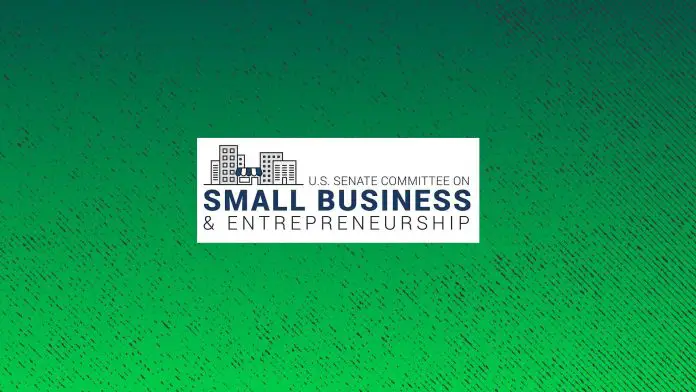In a decisive move aimed at enhancing support for small businesses, the U.S. Senate Committee on Small Business and Entrepreneurship has pushed forward the nomination of Dr. Casey Mulligan as Chief Counsel for Advocacy at the Small Business Administration (SBA). Chair Joni Ernst (R-Iowa) spearheaded this effort, intending to equip the SBA with a leader capable of tackling bureaucratic challenges and easing regulatory burdens that small business owners face.
Senator Ernst, during the nomination hearing, emphasized Dr. Mulligan’s extensive qualifications. She stated, “Dr. Casey Mulligan understands Main Street and the importance of examining all costs imposed on America’s entrepreneurs.” His deep understanding of economic impacts on small businesses is expected to pave the way for a more favorable regulatory environment, allowing entrepreneurs to thrive.
With small businesses often operating on tight margins, the implications of regulatory costs are significant. Ernst pointed out a troubling trend: during the previous administration, an overwhelming 1,100 final rules accumulated a staggering cost of $1.8 trillion to small business owners. In stark contrast, the Biden administration’s regulatory costs have been reported to be exponentially higher—600 times more costly than those in Trump’s first term.
Dr. Mulligan’s nomination comes during National Small Business Week, a time to celebrate the contributions that these entrepreneurs make to the economy. Ernst articulated the urgency of filling the Chief Counsel position, which has remained vacant for nearly a decade. "Having served as the top Republican on the Small Business Committee for years now, I truly understand the need for this position to be filled immediately," she stated.
The Chief Counsel for Advocacy plays a critical role by ensuring that small business voices are heard in regulatory discussions. This position is essential, as Ernst highlighted the increasing vulnerabilities of small businesses to excessive government regulations. By promoting a more business-friendly regulatory landscape, the SBA could drive growth, innovation, and job creation across various sectors.
Dr. Mulligan brings a unique combination of academic prowess and real-world experience to the role. A graduate of Harvard, he earned his Ph.D. in economics from the University of Chicago, where he currently teaches. Additionally, Dr. Mulligan operates two small consulting and economic research firms, adding a practical dimension to his academic knowledge. His extensive research on the impact of regulations on small businesses further solidifies his position as a valuable advocate for this constituency.
For small business owners, the potential benefits of Mulligan’s leadership may include a reduction in regulatory pressures and a more supportive environment for growth. As the SBA reassesses its policies and direction, having a dedicated champion for small businesses could enhance its ability to assist entrepreneurs navigating complex regulatory landscapes.
However, small business owners should also consider some potential challenges. The path to implementing regulatory changes is rarely straightforward and often meets resistance at various levels of government. The political landscape can influence how quickly and effectively policies are reformed.
Despite these challenges, Ernst’s push for Dr. Mulligan’s confirmation reflects a significant step forward in advocating for the rights and needs of small businesses. With a confirmed Chief Counsel in place, the SBA could more effectively protect small business interests, ensuring that entrepreneurs receive the support necessary to succeed.
As discussions around Mulligan’s confirmation develop, small business owners are encouraged to stay engaged with the SBA’s initiatives and advocacy efforts. This engagement could prove invaluable as the agency works to remove obstacles that hinder business growth.
The nomination hearing underscores a critical moment for small businesses across the nation. With determination and the right leadership in the SBA, small businesses could see a revitalized approach to regulation that allows them to focus on what they do best—serving their customers and boosting the economy.
For those interested in more details on this development, read the original press release here.
Image Via BizSugar



